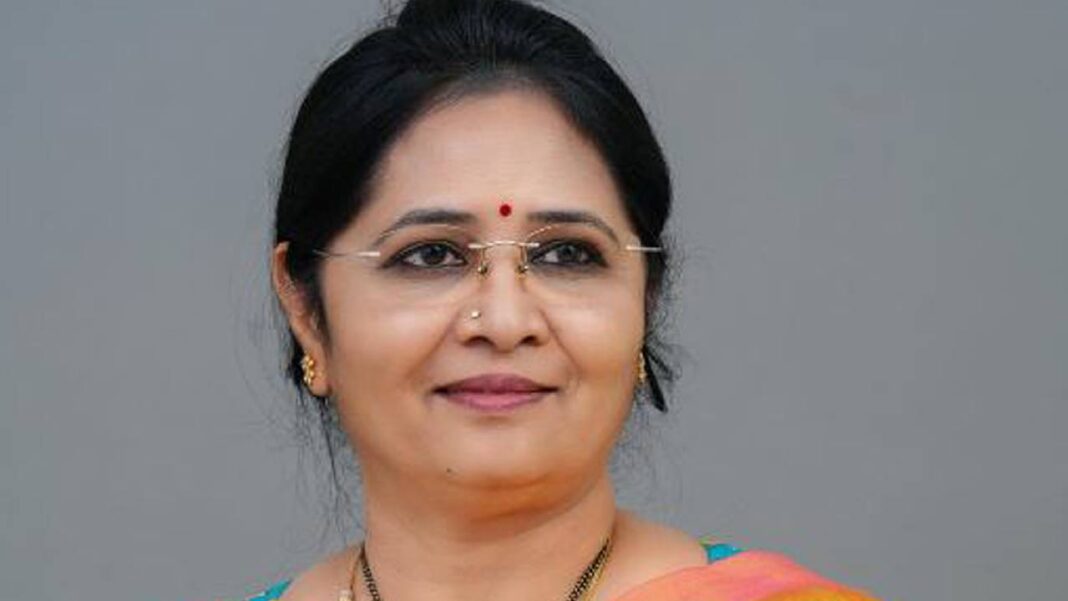From a remote tribal hamlet in Telangana to the esteemed position of Vice-Chancellor at Veeranari Chakali Ilamma Women’s University, Prof. Dr. Surya Dhananjay’s journey is one of remarkable resilience, grit and transformation. Born in Bhallu Naik Thanda, Nalgonda, she broke through the shackles of child marriage, caste-based discrimination and deeply ingrained societal limitations to emerge as a pioneering academic and a vocal advocate for women’s education. Once a tribal girl who had never stepped outside her village—where no girl had pursued higher education in nearly a decade—she nearly abandoned her dreams under the weight of social expectations and early motherhood. Yet, with unwavering determination and the steadfast support of her husband, she raised newborn twins while simultaneously climbing the academic ladder, eventually becoming a Telugu Assistant Professor. Her inspiring ascent has since been recognized with numerous accolades, including the Savitri Bai Phule National Award by the Bahujan Sahitya Academy in New Delhi (2018), the Indira Priyadarshini National Award by Health Care International in Hyderabad (2017) and the Banjara Mahila Ratna Rashtriya Puraskar by VP Naik Yuvasangh Nathan and Dapura Banjara Samaj, Maharashtra (2014). She also received the Vasanth Bhushan Rashtriya Puraskar for her outstanding contribution to Banjara literature from the VP Naik Yuva Sangathan, Maharashtra (2013) and the Banjara Ratna Award from the Rashtriya Banjara Sahitya Parishad, Pune (2013). Most notably, she was honoured with the Women Achievers Award by the Government of Telangana and celebrated on the International Day of the World’s Indigenous Peoples for being the first Scheduled Tribe woman to earn a PhD from Osmania University. Today, as Vice-Chancellor, Dr. Surya channels her lived experiences to mentor, empower and stand beside every student—regardless of background—while also championing the preservation and recognition of Banjara culture and language.
In a heartfelt conversation with The Pioneer’s Deepika Pasham, she opens up about her transformative path—marked by resilience, guided by a supportive husband, and powered by an unshakable commitment to uplift her community and preserve Banjara culture.
Thanda Named After My Father
I belong to Bhallu Naik Thanda in Miryalaguda, Nalgonda District. My father, Bhallu Naik, had a vision to make education the highest priority in our village. Though he was illiterate, he learned to sign his name after marriage. He dedicated himself to social work and contributed significantly to the development of our community. He established a school in Thanda, which had only 250 voters at the time, and eventually, the area was recognized as a Gram Panchayat. However, after the sudden demise of my father, the village became divided, and unfortunately, the only school was taken away.
Education against the odds
I was only able to study up to Class 3 in my Thanda, as my father passed away when I was just four years old, and the government school in our village was subsequently shut down. To continue my education, I had to walk 7 to 8 kilometres to a neighbouring village, accompanied by my brother and younger sister, to attend Classes 4 and 5. Later, I moved into the SC Girls Hostel in Miryalaguda, where I studied until Class 10.
A product of child marriage
By the time I completed Class 10, my mother had started receiving many comments about my marriage, saying I was not being married at the “right age,” even though I had just finished school. Because of these pressures and concerns about marriage plans threatening to stop my education, I avoided returning to my village while staying at the girls’ hostel. Eventually, I married my husband, who was considered the intellectual of our village. At the time, he was pursuing his PhD, while I was in my first year of intermediate college.
Hurtful Words That Sparked a Relentless Journey
During the period I had discontinued my studies, I visited my village once. A distant relative came to meet us, and I casually asked him, “Is your sister studying?” His response shocked me: “What are you doing fighting to complete your studies? Aren’t you also washing utensils in the kitchen?” His words hit me deeply. When I returned to Hyderabad, I removed all my books from shelves and cupboards, ready to give up. Yet, I surprised myself—I wrote all my exams consecutively, from degree to graduation, then continued on to B.Ed, M.Phil, and Ph.D., without stopping anywhere.
Holding Together as One Large Family
I come from a family of ten siblings, born in an era when family planning operations were uncommon. Back then, government officials encouraged men to undergo sterilization procedures to limit family size, but many men avoided these operations out of fear. They believed such procedures would make them medically unfit to continue their livelihoods, which often involved physically demanding work like farming and labor in the fields. Our family is well-known for being large, and at weddings, we often travel together by bus, sometimes with a few of us sleeping on the floor. Out of all my siblings, only three have settled in the city, along with some of their children. Most of my sisters still live in Thanda and continue to engage in farming.
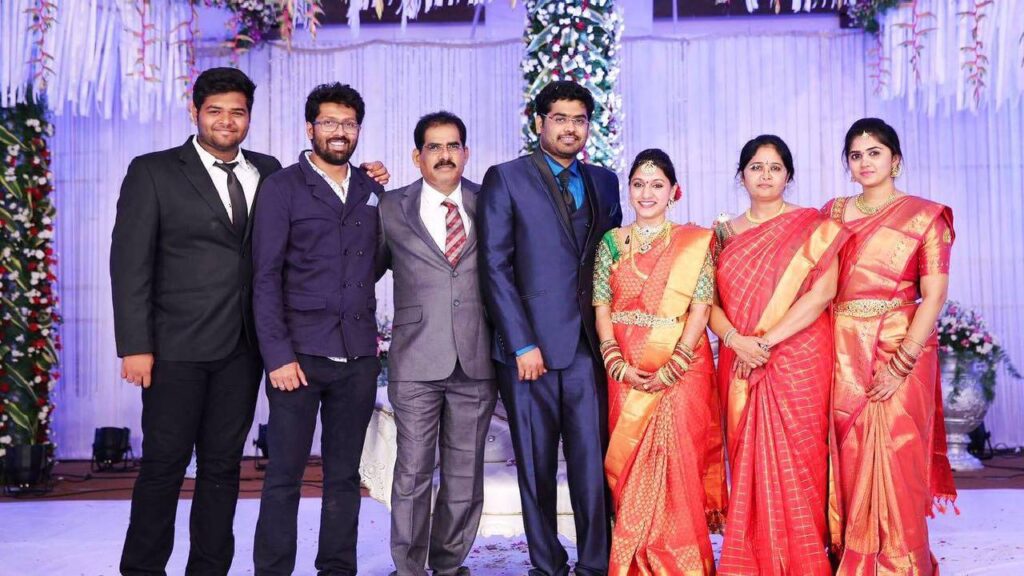
Doctor Dream That Slipped Away
Growing up in a large family, my mother was determined that all of us receive an education. During my early years, a family doctor—who was a close friend of my late father and whose son was a friend of my brother—encouraged me to study hard. He told me that since there was no doctor in our community, I should aim to become one. Inspired by his words, I chose the BiPC (Biology, Physics, Chemistry) stream in intermediate. However, I was married while still in my second year of intermediate, and within a year, I had children. This forced me to discontinue my studies.
Early Spark for Financial Freedom
I cannot recall a single moment when I first understood the concept of financial independence, but as a child, I often asked everyone how much I needed to study to get a job and earn money. Even before the idea of women gaining financial independence became popular, I had already begun thinking about it. My seniors told me that after completing the tenth grade, a typist job was the most common option. I considered joining typing classes when I was in eighth grade, but the fees were a barrier. Also, I needed someone to accompany me to and from the classes. My mother often told me that I should do something to be independent and never have to ask for money like she did from my father. Those words stayed with me, fueling my determination to study hard and become an officer one day.
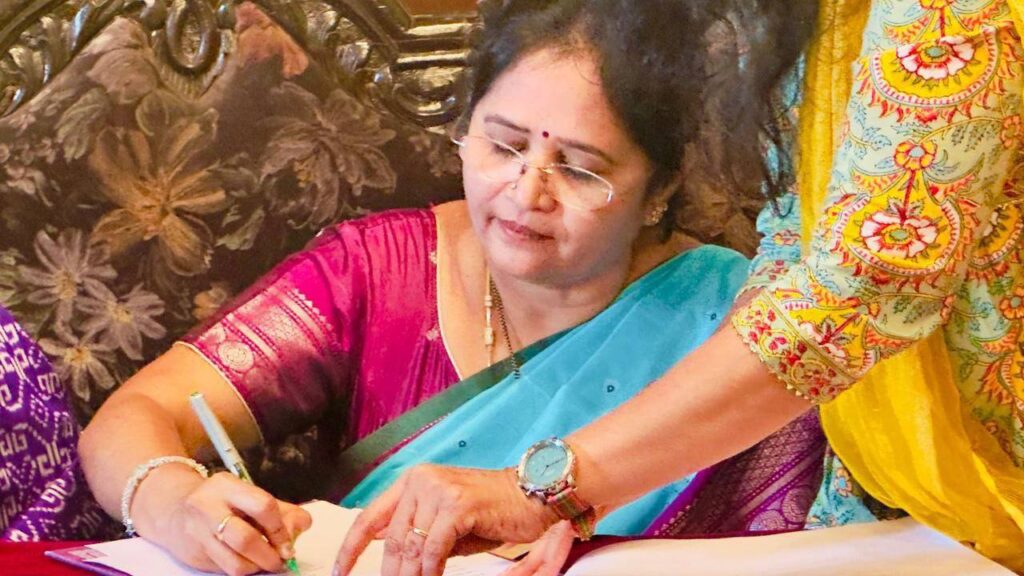
Mom’s Visits Felt Embarrassing but Meaningful
My mother, Diwali Bai, played a strong role during my education. I had secured a seat in an SC educational institute, but initially, they did not grant me a spot in the SC hostel. I was admitted only because another girl from my Thanda was also there. Often, I would go for walks and sometimes ask for lifts from villagers. One day, my mother came to visit me wearing the traditional Banjara community attire—a rare sight at the institute. She found me sitting under a tree, studying less frequently as was her usual concern, and walked right in through the gates. She told the teachers my name and approached my class teacher, asking permission to take me for my father’s death anniversary. Her presence in traditional dress surprised many and drew curious looks, which was initially embarrassing for me. But over time, I realized her attire symbolized the preservation of our rich culture and identity.
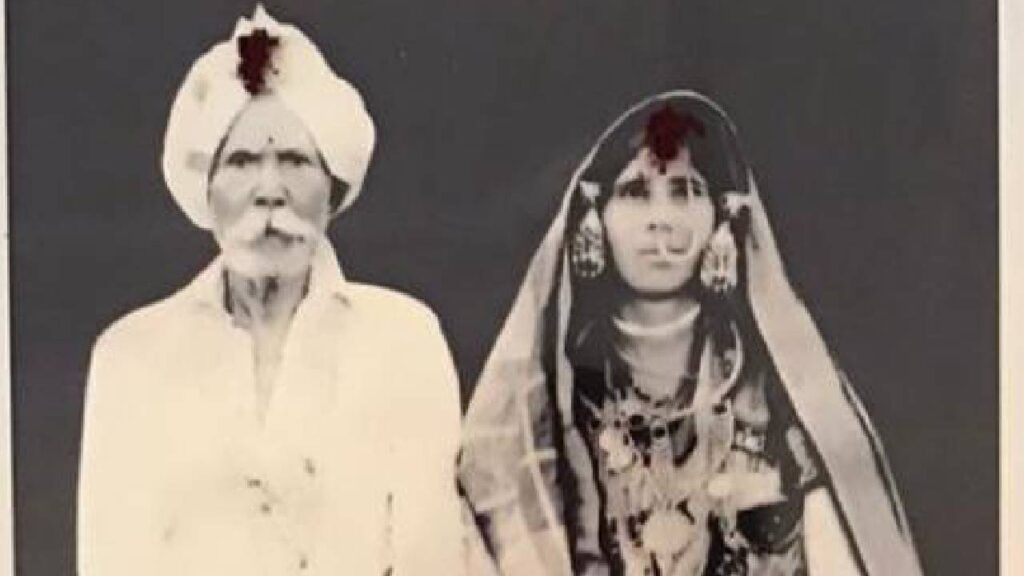
Supportive Partner on My Educational Journey
As I mentioned earlier, I was receiving marriage proposals from a young age, and my mother was often mocked for not getting me married even after class 8. Then came one proposal—my future husband, Dr. Dhananjay Naik, was from Thanda, although we didn’t know his family before. My mother told him that I was the only child determined to pursue education. From that day on, my husband has been my unwavering support. He was pursuing his postgraduate studies at Osmania University when we got married. He would handle the exam applications for me while I prepared mostly on my own, often without attending regular classes, and then sit for the exams. He also took care of our children whenever I had work, spending quality time playing and bonding with them. Whenever people praise him for encouraging me, he humbly says he only took me to the water’s edge—the effort of drinking was entirely mine.
Pampered queen of my supportive mentor
There’s a saying that behind every successful man is a woman—but in my case, I am the pampered queen, and my husband is the mentor, guide, and support behind my success. Yet, he humbly says that academics were always my passion, and he simply kept his promise to help me continue my studies.
Carrying Osmania Values to Women’s University
As I kept progressing in my career—from becoming a Degree Lecturer to heading the Telugu Department at Osmania University, and now taking charge as Vice-Chancellor—each role brought its own set of responsibilities. During my time at Osmania University, I maintained a warm and approachable relationship with students. They would interact with me respectfully and felt comfortable sharing their concerns, which I always tried to resolve. I intend to carry forward the same approach here at the Women’s University. After taking charge, I conducted meetings, visited all departments and hostels, and quickly identified several gaps. I immediately raised concerns about the lack of proper infrastructure and began addressing them.
Documenting Banjara Lives Without a Script
I belong to the Banjara community, and as part of my academic journey, I conducted extensive research in Nalgonda district titled Banjara Sahana Jeevitha Chitrana, which translates to a life documentation study of our community through fieldwork. Since our language doesn’t have a script, it is often classified as a tribal language. Known as Ghorbholi, our dialect has strong Hindi roots, as we originally migrated from North India—particularly Rajasthan. Due to the lack of a written script, the best contribution candidates from tribal villages can make academically is through thesis submissions based on oral traditions and lived experiences. Even today, many members of our community struggle to speak Telugu. Personally, I only began learning Telugu after Class 6.
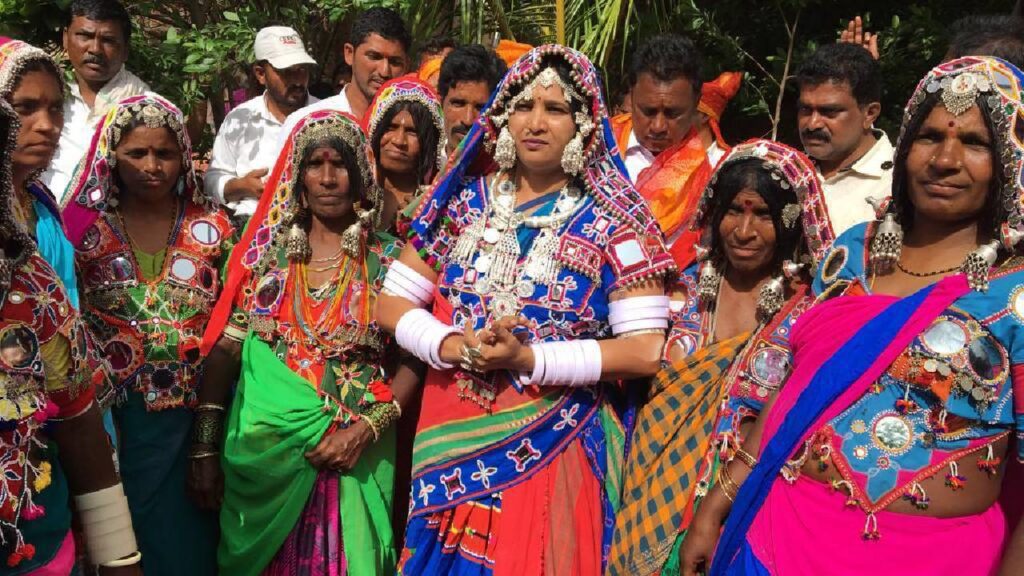
Green Pen Inspiration: A Turning Point in My Journey
During my husband’s time working at Osmania University, I noticed many people coming to him for his signature, which he always signed with a green pen. Curious, I once asked him what was so special about it, as I had no idea then. He explained that only gazetted officers—those in designated, respected government ranks—use green pens for official signatures. He told me that even Junior College Lecturers and Degree College Lecturers fall under that category. That conversation changed my life. Inspired by his words, I decided to pursue those positions after completing my master’s degree. I eventually worked for six months as a Degree College Lecturer. It felt like a true turning point—going from a dropout to a graduate and beyond. I had broken a major barrier.
More Than Reservation: Breaking Stereotypes with Grit
People often only see my journey through the lens of reservation, not the immense struggles I went through to earn my education. But reservation doesn’t pass or fail you—your effort does. Many educated individuals still speak behind my back, reducing everything to caste, but I’ve never let their words deter me. If I start paying attention to every comment, I’d lose focus on my goals. The truth is, no one truly knows how much my husband and I dedicated ourselves to education. I get emotional even talking about it—there were nights when my newborn babies slept on my lap while I studied for hours. Financially, things were difficult. My husband’s salary would run out within 25 days of the month. Yet, anyone from our village or district who visited Hyderabad—whether for hospital visits or other needs—would come straight to our house. We never turned anyone away.
Author for Life: Writing the Story of My People
Beyond teaching and administration, I also explored writing as a way to preserve and share our heritage. I’ve authored books that reflect the depth of Telugu literature, tribal experiences, and cultural history. My notable works include Banjara Jeevana Chitra (2015), which documents the everyday life and customs of the Lambada community, and Banjara Sahityam – Oka Pariseelana, a scholarly study analyzing tribal literary forms. Through writing, I’ve found another path to represent and uplift my community.
Prof. Surya Madam Means Saree
I once presented a seminar at the History Department with my hair tied up in a clutch, and some students remarked, “How can a Telugu teacher dress like this?” But what they didn’t know was that it was Shri Ram Navami. As a woman, wife, and mother, I had completed all my household responsibilities early that morning before arriving to present my paper. That day, I decided—let the world know: Prof. Surya Madam means saree, dignity, and strength. My attire is not up for debate—it’s an extension of who I am.
Fearless During the Telangana Movement
During the Telangana statehood agitation, I was never one to stay silent or stay at home. I actively participated in every protest, every rally. Even when smoke bombs were hurled, I stood my ground without fear. I gave speeches at protest tents, participated in hunger strikes, and stayed on the frontlines—fighting for the dream of a separate Telangana. My contribution was wholehearted, constant, and driven by belief.
Student Welfare at Osmania University
Though I still have ten years of service left, my journey has always been rooted in student-centric work. I supported students who were arrested during the movement, ensured food reached them, and offered books and guidance. I helped underground student activists, distributed awareness literature, and donated cultural instruments like dappulu to artists. I even extended legal support and bail for detained students and personally visited those in hospitals. Through every challenge, I stood by the youth—uplifting them with moral support and motivational speeches.
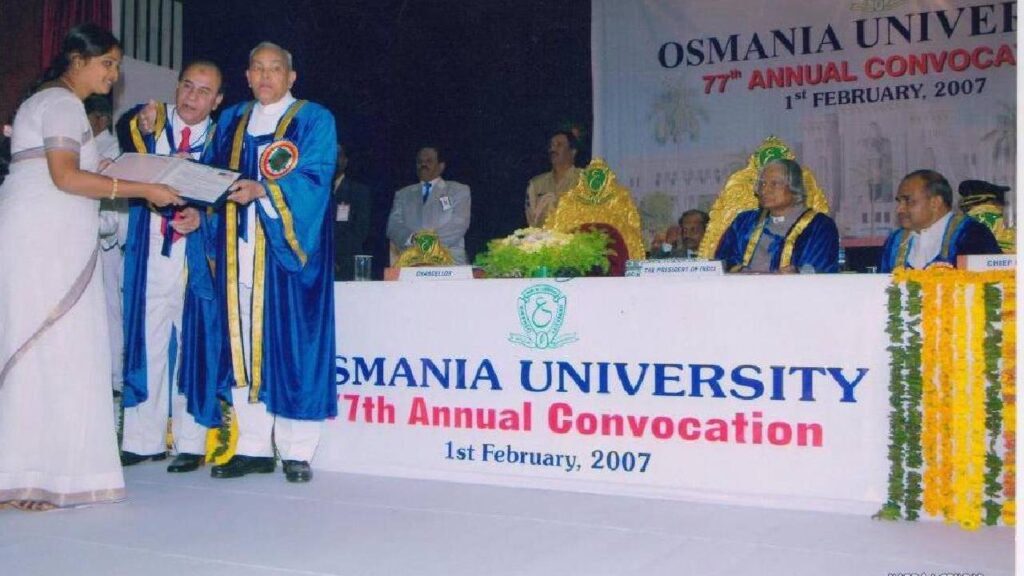
My Husband: The Strict Academic Guide
We’ve been blessed with children who are not only understanding but also well-settled in their careers. The credit for academic discipline in our home goes to my husband. He was always clear—education comes first. He was a strict but consistent guide, ensuring that academics were given priority above all else.
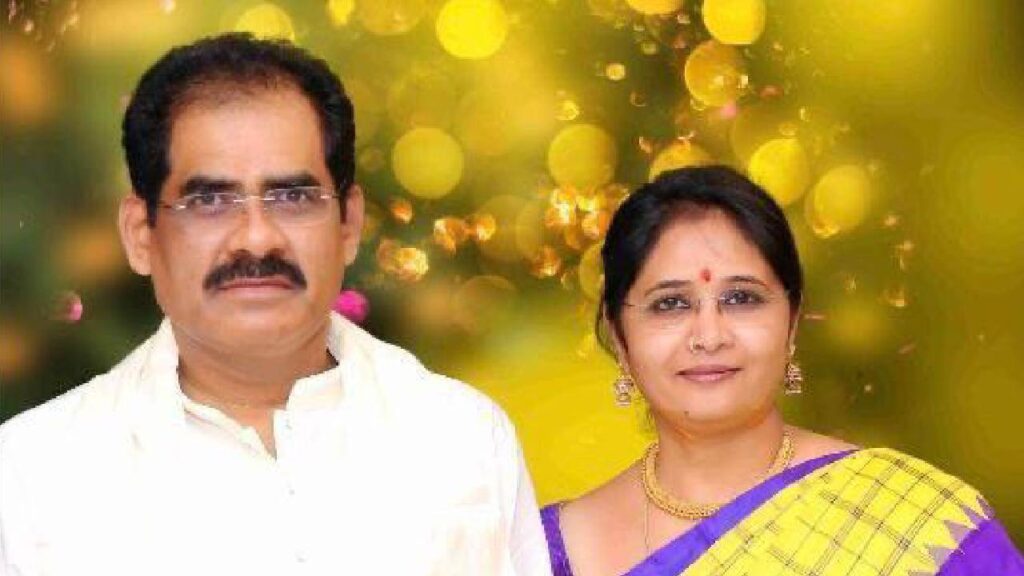
Preserving the Banjara Identity: A Cultural Mission
As a proud member of the Banjara (Lambadi) community, I’ve always recognized the deep cultural wealth of our people—be it in our language, oral traditions, attire, or rituals. But modernization, migration, and assimilation have posed serious threats to this identity. Our mother tongue, Gor Boli, has no script, and fewer young people speak it today.
Protecting this heritage is not just an act of remembrance—it’s a necessity. We need inclusive policies and grassroots efforts to promote Gor Boli in education, celebrate Banjara festivals, and showcase our art and attire on public platforms. Our community’s contributions to sustainable living, medicine, and crafts are significant and must be preserved. If we lose our language, we lose our stories—our bridge between generations. Preserving Banjara culture is not just about holding on to the past; it’s about securing a proud, inclusive, and diverse future for India.
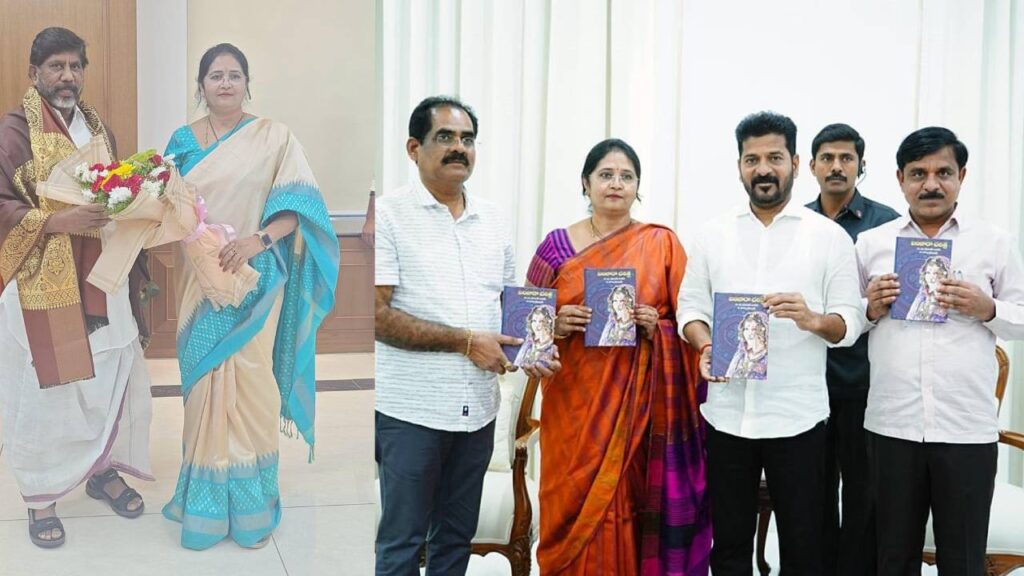
Rapid Fire:
Describe Yourself in Three Words: Hardworking, Helpful, Self-respecting, Creative
Favourite Author: Gurram Jashuva, Dr. C. Narayana Reddy, Dr. N. Gopi
Favourite Hero: Nagarjuna
Favourite Color: Pink and White
Favourite Destination: Our Thanda
Favourite Cuisine: Naatu Kodi, Vatti Chapalu, Pappu and Mango pickle.


